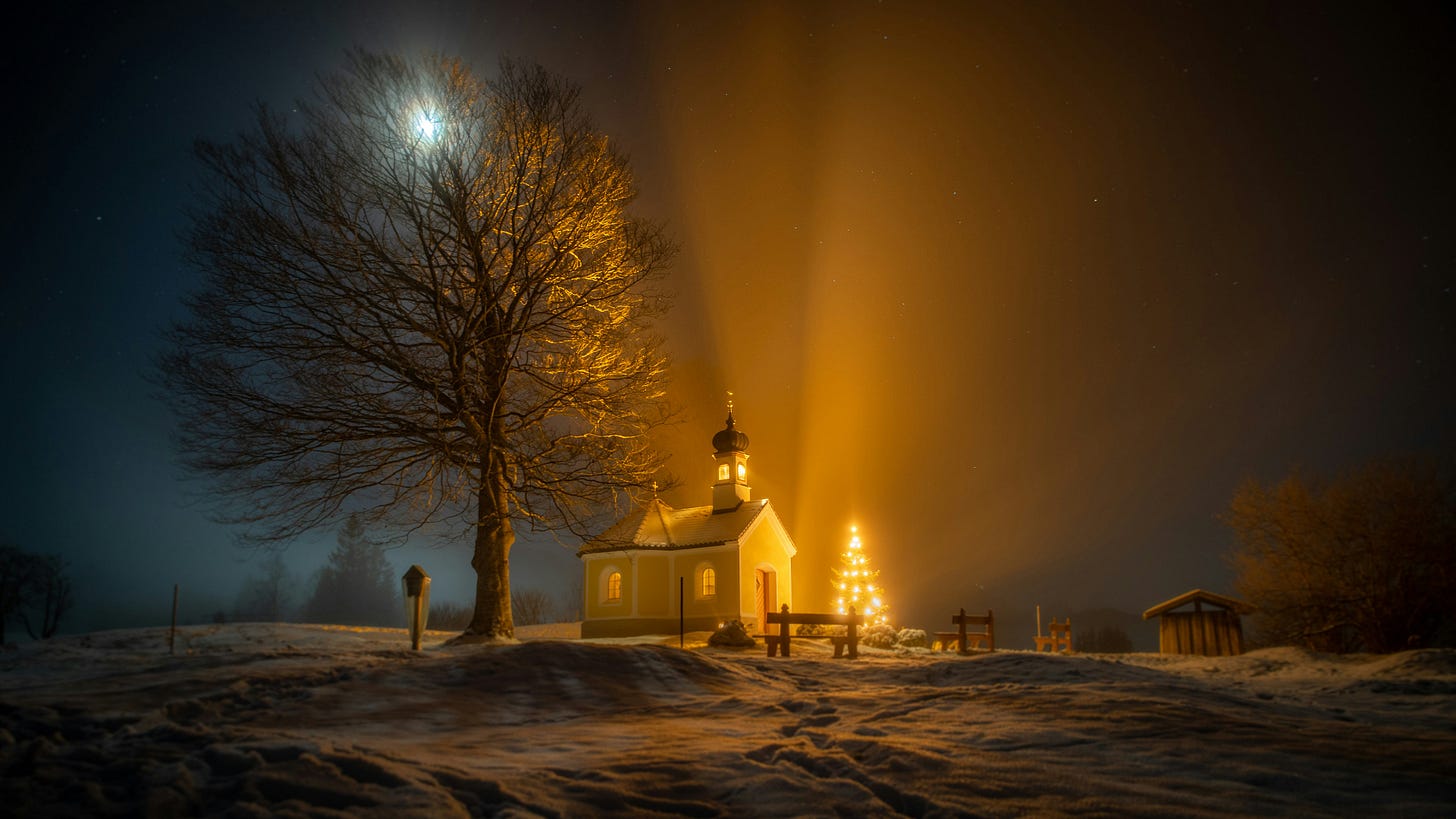Of Things Mournful and Bright
Every tomb leads to life for Christians.
One of my family’s favorite Christmas songs is an old English carol called “Lully, Lulla, Lullay.” Originally known as the Coventry Carol, it dates back to the 16th century. The song was traditionally performed in Coventry, England, as part of a Christmas play depicting the “Massacre of the Innocents,” when Herod ordered all male infants under the age of two in Bethlehem to be killed. It takes the form of a haunting lullaby sung by the mothers of the doomed children.
As part of this historical Christmas play, mothers would walk on stage cradling their “doomed children.” It’s hard to imagine a modern Christmas play including something so dark. Yet, this moment is no less a part of the Christmas story than the shepherds and angels.
Historic Christians understood the importance of not merely sentimentalizing Christmas…
Obsessive Negativity is Also not the Answer
When the Israelites sent spies to scout out the Promised Land before God gave it to them, their report was mixed. They described the land’s abundance, saying, “We came to the land to which you sent us. It flows with milk and honey, and this is its fruit.” They showed the congregation the bounty they had gathered (Numbers 13:26–27).
“However,” they said, “the people who dwell in the land are strong, and the cities are fortified and very large… We are not able to go up against the people, for they are stronger than we are” (Numbers 13:28, 31). They went further, bringing “a bad report of the land,” describing it as “a land that devours its inhabitants,” filled with giants—descendants of the Nephilim—who made them feel like mere grasshoppers in comparison (Numbers 13:32–33).
The land was both good and frightening. The same God who had delivered them from Egypt with mighty signs and wonders, the God who had shown His faithfulness time and again, offered them this gift. Still, they focused on the obstacles, unable to believe that such goodness could truly be theirs. They morbidly focused on the darkness and refused to see God’s goodness.
This duality—the simultaneous presence of goodness and darkness—echoes through the stories we tell, especially around Christmas. Some focus exclusively on the good, creating saccharine narratives that feel smarmy, sentimental, and disconnected from reality.
Others, like the Israelites, dwell entirely on the darkness, painting bleak pictures devoid of hope. Most of us swing between the two perspectives, sometimes embracing both extremes in a single afternoon.
It’s not enough to strike a lukewarm compromise. The real challenge is to see both the good and the dark with clarity, acknowledging the light while still seeing the dark with eyes wide open.
Only a story can reveal how the darkness—darkness that’s big, ugly, and villainous—as overwhelming as it might seem, ultimately only serves to advance the good.
Herod’s cruelty only served to advance Christ’s kingdom and diminish his own.
In storytelling terms, this is what J.R.R. Tolkien called a “eucatastrophe”—a sudden, unexpected turn of events where good triumphs over evil in a way that feels both surprising and inevitable in hindsight. At the darkest point, when victory seems impossible, new light breaks through, revealing that goodness was destined to prevail all along.
This is the lens through which Christians are called to view life. The dark and the light, the good and the bad, are woven together in a pattern that always leads to redemption.
This Christmas is a mixture of dark and light for me, as I’m sure it is for you. My daughter is home from the hospital, and my oldest son is visiting from WA state (we recently moved to AL), both of which circumstances are incredible gifts. At the same time, I recently injured myself and also lost my job.1
But for a Christian, every tomb leads to resurrection. Every death leads to life. Every hardship, every disappointment, becomes a tool in God’s redemptive plan, transforming suffering into profit and new beginnings.
It’s vital to include the dark elements of the Christmas story in our retelling—not to dwell on them, but to see them as integral to the greater narrative. They remind us that no matter what villains attempt, they cannot overthrow the kingdom of Christ.
The story of Christmas is not just for December. It is a daily reminder that light overcomes darkness, that life triumphs over death, and that the King’s reign is eternal.
My boss says that my job loss is temporary due to a recent decrease in blogging clients at my agency, and he wants to hire me back in a few months. In the meantime, if you or anyone you know needs content writing/blogging/copywriting help, contact me!



Stirring perspective, Noelle. Keep us appraised of how God uses this job loss to lead you to new work that he has prepared for you -- and I'll pray that it will come in perfect timing. I wrote a Christmas story of eucatastrophy and hope you and your readers enjoy it. https://open.substack.com/pub/katesusong/p/paradox?r=2iyrll&utm_campaign=post&utm_medium=web&showWelcomeOnShare=true
I’m sorry to hear of some of the challenges you are facing, your work has been a great blessing as it has aided me on this magical journey I’ve been on for a while. Your talents will be recognized and I’m sure there will be folks who can use them. Wished I had some influence because I believe your work needs to go out to more people.
Great observations, many tend to see the fruit and parts of a season like Christmas, and discard other details that create a harmonious story. I see it in modern evangelical preaching , and I see it on how we celebrate the liturgical seasons. There is so much more that a season like Christmas can do to feed the soul if we would just look into the whole counsel, and not just selective parts